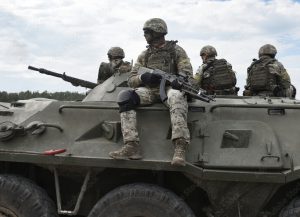
Displaced Residents Say “War in Lebanon Means Less Global Attention Towards the Crisis in Gaza”
The intensifying war in Lebanon has shifted global attention away from the ongoing crisis in Gaza, according to displaced residents and humanitarian activists. For years, Gaza has been at the center of international concern due to its protracted humanitarian crisis, but as the conflict escalates in Lebanon, it is pulling media coverage and diplomatic focus in another direction. This shift has left many Gazans feeling overlooked, exacerbating the struggles of a population already facing severe challenges.
The Complex Nature of Regional Conflicts
The Middle East has long been a hotbed of conflict, with multiple nations embroiled in wars that have both regional and international implications. Gaza, a small, densely populated enclave, has been enduring a humanitarian crisis for over a decade. Blockades, intermittent military strikes, and deep political divisions have led to widespread poverty, lack of essential services, and a constant state of emergency for its residents.
Lebanon, on the other hand, has seen its own share of turmoil, from political instability to economic collapse. In 2024, the situation took a turn for the worse when escalating tensions between armed groups led to full-blown conflict. The war in Lebanon now threatens to destabilize the entire region, drawing international powers and alliances into its orbit.
The rise of conflict in Lebanon has become the dominant focus for the international community, overshadowing the ongoing challenges faced by Gaza. Displaced residents in Gaza feel that this shift has undermined the urgency of their situation, leaving them to fend for themselves in an already dire context.
Media Focus and Global Diplomacy
One of the most immediate consequences of the war in Lebanon is the diversion of media attention. International news outlets, which had frequently covered the humanitarian plight in Gaza, are now dedicating more resources to Lebanon. The dramatic images of bombed-out buildings in Beirut and displaced families fleeing to the borders have become the new focal point of coverage, eclipsing the equally devastating reality in Gaza.
For the people of Gaza, this shift is more than just symbolic. Humanitarian aid and diplomatic efforts are often influenced by the level of international media coverage a conflict receives. The attention of the global audience can bring much-needed resources and advocacy to a crisis. With Lebanon now occupying the headlines, there are concerns that the already meager aid flowing into Gaza will shrink even further.
“The media has a critical role in raising awareness about our situation. Without their coverage, the world forgets about us, and aid dries up,” said one displaced Gazan resident. “Now, with Lebanon in the spotlight, we’re worried that we’ll be pushed further into the shadows.”
Humanitarian Concerns
For humanitarian organizations, this shift in focus is particularly troubling. Gaza is in desperate need of international assistance. Over two-thirds of the population relies on humanitarian aid for survival, and the constant blockade has left the region on the brink of collapse. Yet, with Lebanon facing an immediate and growing humanitarian crisis, aid agencies are being stretched thin.
“The war in Lebanon is a serious concern, but we cannot ignore the fact that Gaza is still in crisis. We need the international community to continue its support for both regions,” said a spokesperson for an international aid organization working in the Middle East.
The Fear of Prolonged Neglect
The fear among Gaza’s displaced residents is that the conflict in Lebanon will not be short-lived. If the war drags on, there are concerns that Gaza’s humanitarian needs will be neglected indefinitely. With limited resources and international attention divided, Gaza’s residents fear that they will be left in a state of perpetual crisis, with no end in sight.
While Lebanon’s situation is indeed critical, displaced residents in Gaza are calling on the international community not to lose sight of their struggles. They stress that a balanced approach to the Middle East’s crises is essential to ensure that no one is left behind.
The war in Lebanon may dominate headlines today, but the people of Gaza hope that their cries for help will not be lost in the noise. Both conflicts deserve attention, and both need solutions that prioritize the well-being of the innocent civilians caught in the crossfire.




